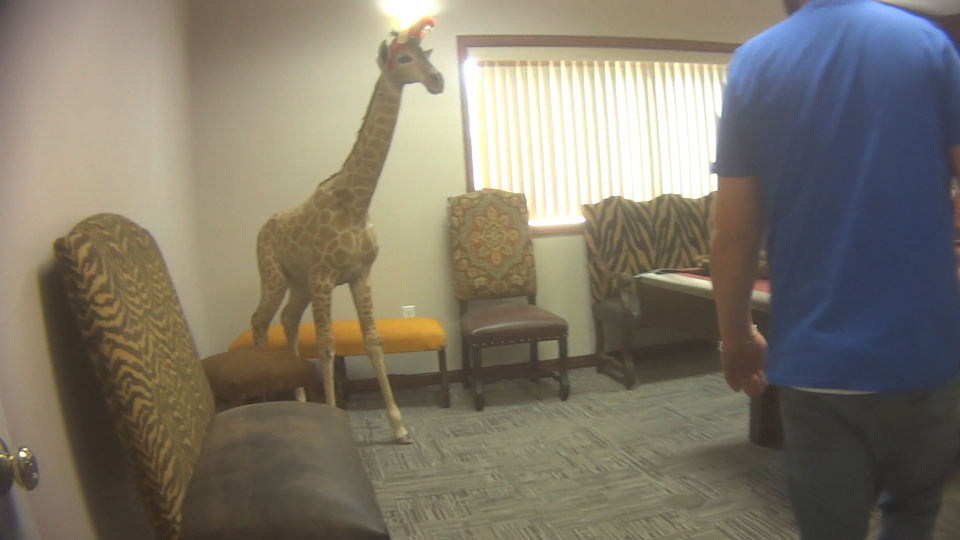Taxidermy of a full juvenile giraffe for sale at B.S. Trading Company, Burleson, TX, January 2018
Credit: The HSUS
Government agrees to deadline for decision
June 4, 2022 - WASHINGTON - In response to a lawsuit by conservation and animal protection groups, the U.S. Fish and Wildlife Service agreed on May 31 to a deadline of November 2024 for deciding if giraffes warrant protection under the Endangered Species Act.
The Center for Biological Diversity, Humane Society International and the Humane Society of the United States filed a petition requesting giraffe protections in April 2017. But the agency missed its legal deadline for a decision, resulting in the litigation.
“This is a crucial step for giraffes, whose populations are dwindling while products made from their skins and bones flood into the United States,” said Tanya Sanerib, international legal director at the Center for Biological Diversity. “This agreement was desperately needed to help give everyone’s favorite long-necked mammal a shot at federal protections. But during an extinction crisis, it shouldn’t take litigation to get action under the Endangered Species Act. We should be racing to save every species we can.”
With fewer than 69,000 mature individuals remaining in the wild, giraffe populations have declined nearly 40% in the past three decades because of habitat loss, civil unrest, poaching and human-caused habitat changes. The international trade in giraffe parts—bone carvings, skins and trophies—puts additional pressure on these iconic animals.
Adam Peyman, wildlife programs director for Humane Society International, speaking on behalf of Humane Society International and the Humane Society of the United States, said: “This was a long, overdue step to protecting giraffes. The United States is a top importer and seller of giraffe parts—including heads, legs and feet, tails and skins—and a leading contributor to the threat of extinction of the species. The demand for these items is deplorable and an Endangered Species Act listing will strengthen the ability to combat this horrific domestic market.”
Protection under the Endangered Species Act would help curb U.S. imports and sale of giraffe bones, skins and other parts and increase funding for conservation efforts for the species. During a recent 10-year period, the United States imported more than one giraffe hunting trophy a day on average and more than 21,400 giraffe bone carvings. Many imported giraffe parts are turned into frivolous decorative items such as pillows, boots, Bible covers and jackets, as revealed by a 2018 undercover investigation by Humane Society International and the Humane Society of the United States.
The International Union for Conservation of Nature assessed giraffes as “vulnerable” to extinction in 2016 and classified two giraffe subspecies as “critically endangered” in 2018 and two more as “endangered” in 2018 and 2019.
Parties to CITES (the Convention on International Trade in Endangered Species) decided in 2019 to regulate international trade in giraffes by requiring export permits. Because these protections do not foreclose the giraffe trade and because of the species’ decline, conservation safeguards are crucial in countries like the United States that have a thriving market for giraffe body parts.
Today’s agreement setting a November 2024 deadline provides a much-needed step toward reversing the role of the U.S. market in the decline of this iconic and irreplaceable species.
Source: Humane Society of the United States









